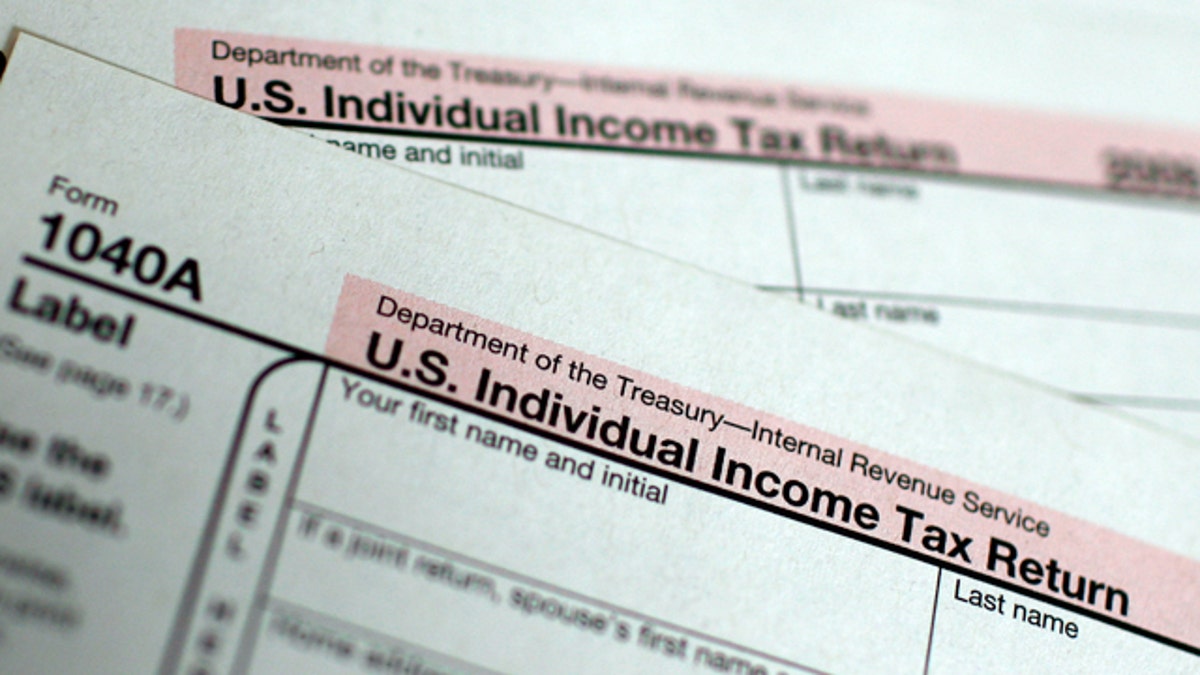
(Reuters)
The deadline to file taxes is next week, and if you’re still scrambling to find deductions, you should look no further than your own home. The home is filled with potential tax breaks – if you know where to find them. So before you put the finishing touches on your tax return, check out these write-offs around the home that could save you money.
Mortgage
Of all the possible tax breaks around the home, the home itself is likely to be your biggest write-off — or more specifically, the interest on your mortgage. The U.S. government has long used the mortgage interest deduction as a way to encourage home ownership, creating an extra incentive for those looking to go from renting to buying. Your lender should send you Form 1098 stating how much interest you’ve paid this year, which you’ll be able to enter as a deduction. To claim the deduction, you’ll have to fill out Schedule A rather than claim the standardized deduction, but you should compare the two to see which will save more money.
Moving Expenses
Moving generally isn’t very fun, particularly when you’re forced to move for your job. However, if a job does cause you to relocate, you might be able to write off a chunk of your moving costs. Of course, when dealing with the IRS, nothing is simple, so there are a couple of things to look out for. The first factor is distance. The IRS requires that you move 50 miles or more from your previous home to qualify — anything less and you’re not eligible for a write off. The second factor is time. You need to spend 39 weeks of the next year working and living in the area of your new home. There are a few caveats and even more exceptions to these two rules, so check out the IRS’ page on the issue to see whether your situation applies.
Energy Efficient Upgrades
Eco-friendly upgrades will save you money on your monthly bills, but they might also save you money on this year’s taxes. If you’ve bought new appliances or made some green upgrades, you could be entitled to deduct some of the cost. Unfortunately not everything emblazoned with an Energy Star label will land you a tax break. Basic appliances like refrigerators, dishwashers and clothes dryers generally don’t qualify, even if they will save you a little money on your monthly bills. However, you can claim up to 30 percent on many bigger-ticket items like wind turbines, solar systems and geothermal heat pumps, and some home improvements, such as improved insulation or windows can net you a 10 percent deduction. If you’ve undertaken some green changes around the home this year, check the Energy Star website to see what breaks you might qualify for.
Home Office
Working from home has a number of advantages: sleeping in when you want, zero time wasted commuting and freedom from annoying coworkers. It also comes with some serious tax advantages, too. If you work from a home office, you might be able to deduct all sorts of things, like a portion of your rent, utilities, Internet and even some repairs. However, be careful. Just because you log a few hours of work at home, it doesn’t mean you necessarily qualify for the home office deduction.
First off, it really needs to be a home office and not a multipurpose space. You can’t put in a few hours of work from the couch and expect to start racking up write-offs. To qualify, the space in which you work must be used regularly and exclusively as a home office. Second, you can only take a home office deduction if it is for the convenience of your employer, not your own convenience. If you prefer to work from home just to cut down on your commute, you’re out of luck. So make sure it’s stated in your employment contract that your employer needs you to work from home.